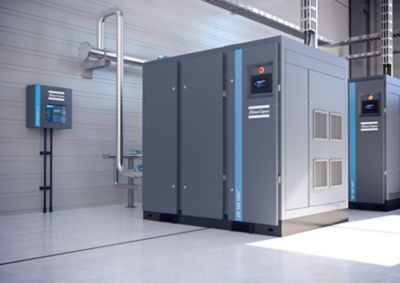The Role of Air Compressors in Chocolate Manufacturing
November 13, 2024
Compressed air is essential to both the cocoa-processing and chocolate-making processes. Historically, compressed air systems were plagued by high maintenance costs, pollution, moisture in the air, and high energy expenditures. However, maintaining compressed air quality during the production process of chocolate and other food manufacturing is crucial for ensuring the quality, shelf life, and cost of the final product. Energy efficiency and the larger objective of reducing carbon emissions impose additional challenges on the processing industry.
Importance of Air Compressor for Chocolate Manufacturing
High-quality, efficient compressed air guarantees that companies are able to produce a great final product with an improved shelf life at a low cost. In other words, to keep up with the upcoming demand for chocolates on account of various occasions, an air compressor for chocolate manufacturing is a must-have. Hence, in this article, we’ll cover the importance of air compressors for the chocolate manufacturing industry.
Why are Air Compressors Needed for Chocolate Manufacturing
Compressed air is essential to both the cocoa processing and chocolate making processes for a variety of reasons. For instance, air compressors for chocolate manufacturing can:
- Purify dust-control equipment
- Regulate offloading and storage equipment
- Modulate control valves
Furthermore, in modern cocoa processing equipment, compressed air is utilized for pod splitting, fermentation, and drying. Air compressors for chocolate manufacturing are essential for conveying, blending and mixing molding, and packaging. Compressed air is also utilized to run robotic applications and cylinders on chocolate wrapping machines in order to expedite the process of delivering millions of chocolates and sweets to store shelves. It is also important to note that considering chocolate is a food product, a food-safe air compressor must be oil-free.
Maintaining the Air Quality with Food Safe Air Compressors
In nearly all instances, compressed air comes into close contact with the cocoa or chocolate being processed. For instance, liquid chocolate is carried from the factory to the chocolatiers in containers. The thick chocolate necessitates the use of compressed air for unloading. As the commodities in question are food items, an oil-free air compressor for the food industry should be used. Any pollutants in the compressed air may contaminate the food product, causing a change in colour and flavour, a shorter shelf life, or exposure to germs and other microbes. This might lead to product recalls and/or export prohibitions, ultimately harming the brand's or company's reputation.
To address these issues, processing units must ensure the following:
- Compressed air has no impurities.
- The pipe system has no leaks and is appropriately constructed for pressure drop.
- The selection of downstream accessories is appropriate.
Compressed air standards for the food industry tend to rely on the HAACP (Hazard Analysis and Critical Control Point), risk analysis, FDA, and local government laws to guarantee the production area and the product are maintained at an acceptable level of quality. It is feasible to reach and maintain these requirements with the correct selection and installation of high-performance oil-free compressors, air dryers, and filtration systems, as well as frequent monitoring of performance and maintenance.
Related pages
FAQs
What is Oil-Free Air?
The term “oil-free compressed air” is typically used to describe compressed air that is created using oil-free compressors. This kind of compressor includes centrifugal, oil-free rotary screws, and non-lubricated reciprocating compressors.
How does an Oil-Free Compressor Remove Oil and Other Pollutants from Ambient Air?
The compression chamber of an "oil-free" air compressor is void of any lubricant. As an alternative, these compressors employ water or a Teflon coating to protect the pump and allow the mechanism to work smoothly without the need for oil-based or synthetic lubrication.
Are there any Real Risks of Using an Oil-Injected compressor System for a Sensitive Application?
In oil-injected compressor systems, compressed air is contaminated with the compressor oil. The hazards of contamination rise when oil removal is dependent on filters and dryers. This can be extremely harmful, especially when used in food manufacturing, like chocolate.

